As the sun dips below the horizon, casting a warm golden glow across the landscape, a Korean Jindo Dog stands tall and proud, its eyes gleaming with an unwavering determination. This remarkable breed, with its fearless spirit and unwavering loyalty, has captured the hearts of many dog enthusiasts around the world.
But what makes the Korean Jindo Dog truly special? What secrets lie behind those piercing eyes? In this discussion, we will unravel the mysteries of the Korean Jindo Dog, exploring their unique characteristics, their adaptability to different living environments, and the challenges and joys of sharing your life with one of these remarkable creatures.
So, come along on this journey and discover the captivating world of the Korean Jindo Dog.
Key Takeaways
- Korean Jindo Dogs are medium-sized, loyal, and protective companions originally from South Korea.
- They are adaptable to apartment living but require consideration for their energy levels and space requirements.
- Aggression in dogs can stem from fear and anxiety, while high prey drive can lead to potential dangers.
- Korean Jindo Dogs are generally healthy but may be prone to hypothyroidism, requiring medication. They should be fed a balanced diet of natural ingredients or high-quality commercially produced foods.
Origin and History
The Korean Jindo Dog originated in South Korea and has a rich history that dates back centuries. These dogs were bred on Jindo Island, where they served as hunting and guard dogs for the local inhabitants. They were highly valued for their bravery, loyalty, and hunting abilities.
The Jindo Dog's medium-high energy levels made them excellent companions for the people of Jindo Island. Over time, the breed's reputation spread beyond the island, and they became recognized as a national treasure of South Korea.
Today, the Korean Jindo Dog is still highly regarded for its intelligence, trainability, and protective nature. They're adaptable to various living environments and are known for their loyalty and affection towards their owners.
Size and Weight
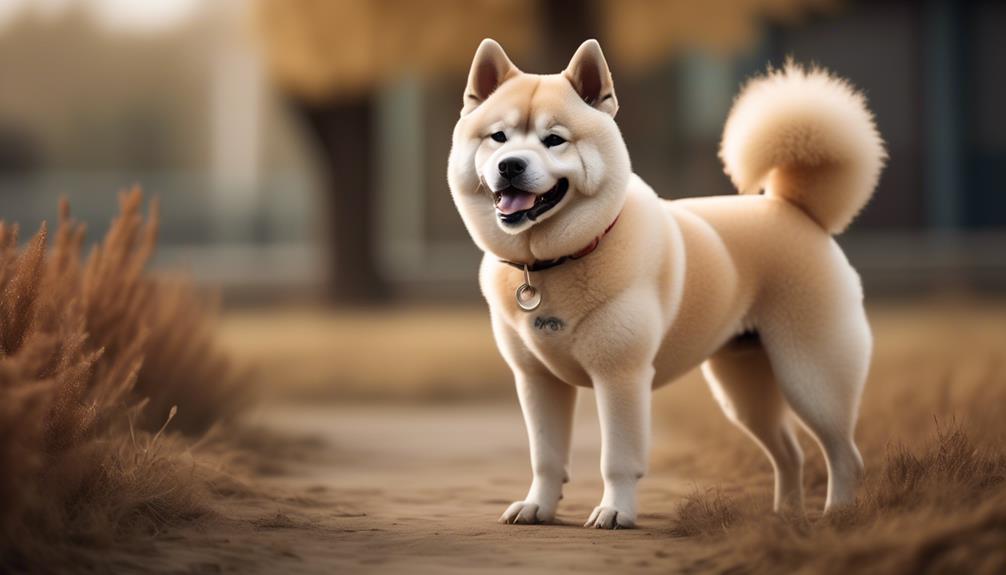
With a medium size and weight, the Korean Jindo Dog typically stands between 18 to 22 inches in height and weighs around 35 to 50 pounds.
Here are three key points about their size and weight:
- Medium-sized breed: The Korean Jindo Dog falls into the medium-sized category, making them suitable for various living environments.
- Height range: They can reach a height of 18 to 22 inches, measured at the shoulder. This size allows for agility and mobility while maintaining a manageable stature.
- Weight range: Korean Jindo Dogs weigh between 35 to 50 pounds. This weight range ensures they're sturdy and have the physical strength required for their hunting instincts.
Lifespan and Characteristics
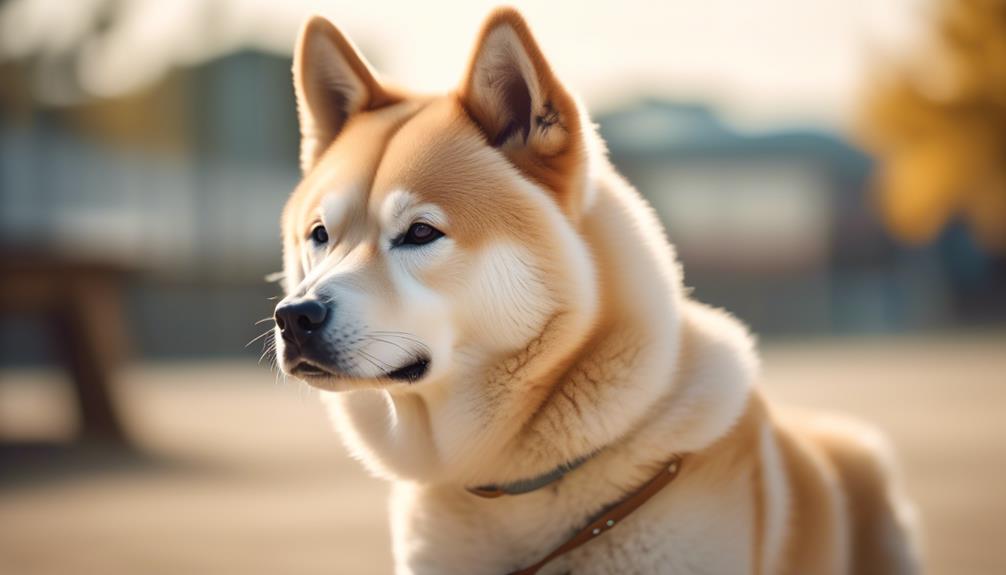
The Korean Jindo Dog exhibits a lifespan of 12-15 years along with unique characteristics that make them a beloved and loyal companion.
Known for their bravery, loyalty, and hunting abilities, these medium-sized dogs have medium-high energy levels. They're quick and easy to train, although they can be stubborn at times.
Korean Jindo Dogs excel as watchdogs and are reserved with strangers, making them great companions for their owners. They adapt well to apartment living and are generally quiet, low-energy, and polite.
However, it's important to prioritize qualities such as being calm indoors and exhibiting good manners. With their adaptable nature and harmonious living environment, they can thrive in various settings, from apartments to farms.
Adaptability and Apartment Living
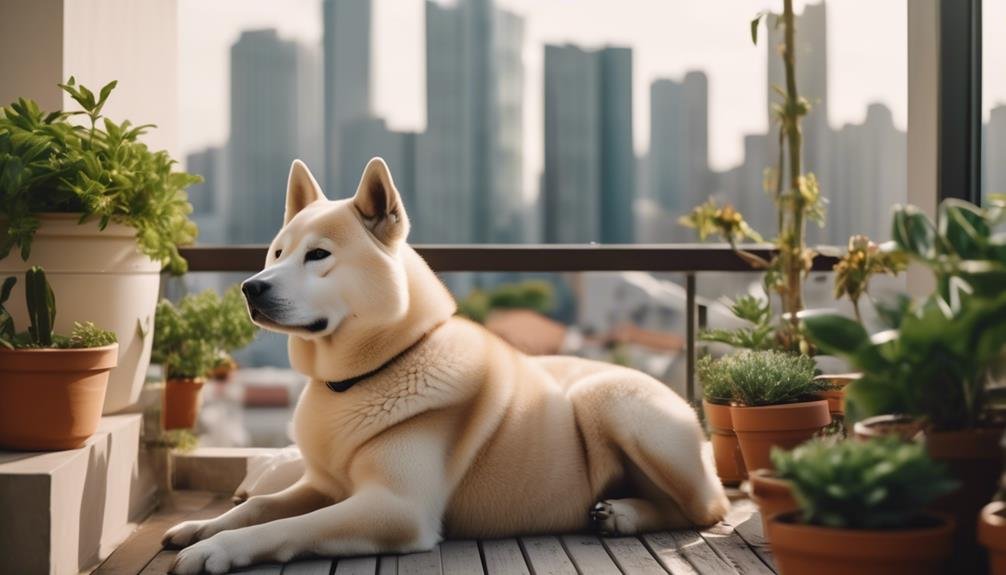
Adapting well to apartment living, the Korean Jindo Dog is a medium-sized breed known for its versatility and ability to thrive in various settings. When considering apartment living with a Korean Jindo Dog, there are several factors to keep in mind:
- Size alone isn't the sole determinant for apartment suitability. The dog's energy level and behavior are equally important.
- Desirable qualities in an apartment dog include being quiet, low-energy, and polite. These qualities contribute to a harmonious living environment.
- Dogs that are highly sensitive, independent thinking, or assertive may not be well suited to apartment living. It's important to choose a breed that can adapt well to apartment life and be a good neighbor.
Aggression, Prey Drive, and Exercise Needs
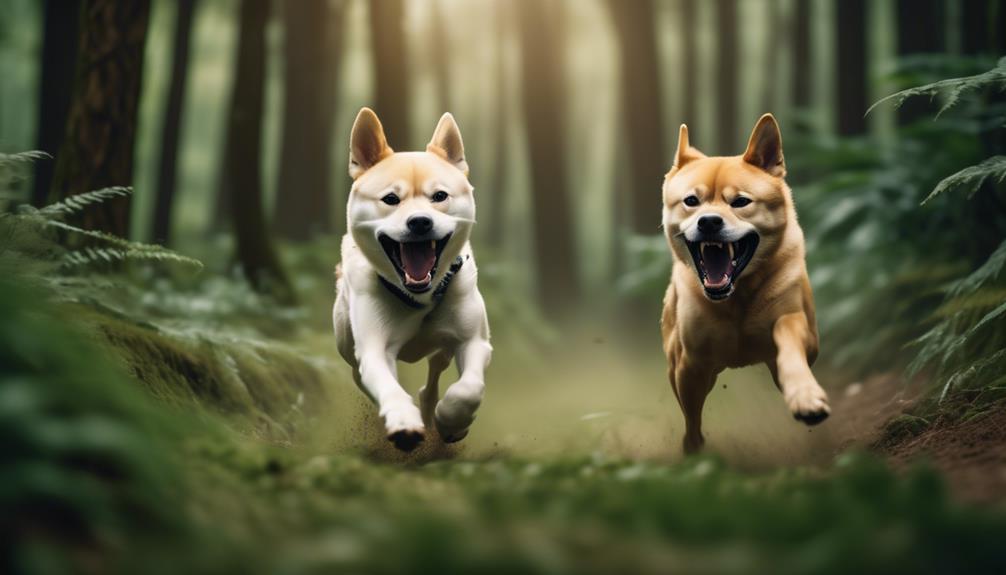
Aggression and prey drive can greatly influence a dog's exercise needs and behavior. Korean Jindo Dogs are known to have a medium-high prey drive, which means they have a strong instinct to chase and potentially hunt small animals. This can lead to them being more active and requiring a significant amount of exercise and mental stimulation. However, it's important to note that not all Korean Jindos will have the same level of prey drive or aggression. Some may have a lower prey drive and be more content with less exercise. It's crucial for owners to understand their dog's individual needs and provide them with appropriate outlets for their energy. The following table highlights the exercise needs and behavior of Korean Jindo Dogs:
| Exercise Level | Description | Examples |
|---|---|---|
| High | Requires vigorous exercise daily to meet their energy needs | Long walks, jogging, hiking, interactive play sessions |
| Moderate | Needs regular exercise to prevent boredom and maintain good health | Daily walks, playtime in the yard, obedience training |
| Low | Prefers a more sedentary lifestyle and requires minimal exercise | Short walks, gentle play, mental stimulation activities |
Playfulness and Energy Levels
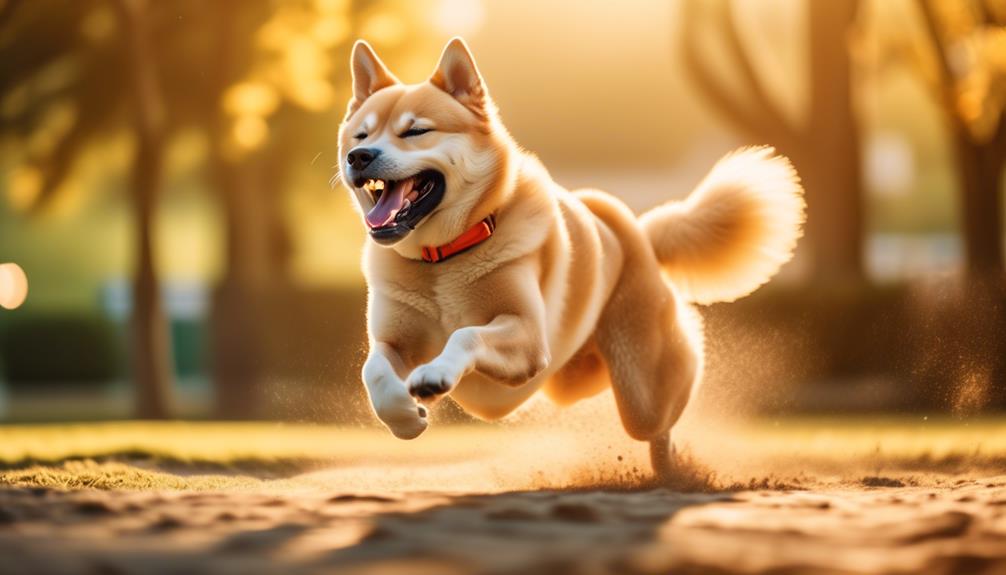
Korean Jindo Dogs exhibit varying levels of playfulness and energy, depending on their individual personalities. Here are three key points to consider:
- Playfulness: Some Korean Jindos are naturally more playful and always up for a game. They enjoy activities like fetch or tag and thrive with playmates such as kids or other dogs. However, not all Jindos are as playful and may have a more serious and sedate demeanor.
- Energy Levels: The energy levels of Korean Jindos can range from medium to high. They require a significant amount of exercise and mental stimulation to stay happy and healthy. Daily walks, playtime, and interactive toys are essential to meet their energy needs. Neglecting their exercise requirements can lead to weight gain and undesirable behaviors.
- Individual Differences: It's important to remember that each Korean Jindo has its own unique personality and energy level. While some may be more energetic and playful, others may be more calm and reserved. Understanding and accommodating their individual needs will help create a harmonious and fulfilling life for both the dog and its owner.
Personality and Temperament
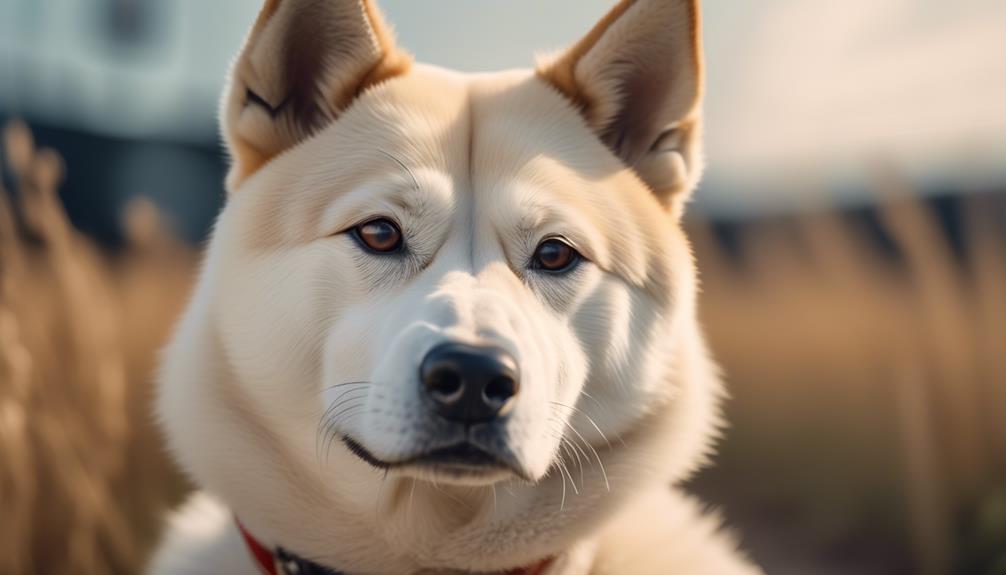
After considering the playfulness and energy levels of Korean Jindo Dogs, it's important to understand their unique personality and temperament.
Korean Jindo Dogs are known for their loyalty, affection, and protectiveness towards their owners. They're intelligent and trainable, always eager to please their owners.
These dogs are adaptable and can live in various settings, from apartments to farms. They generally have good health, with few serious genetic problems, although hypothyroidism can be a common issue that can be treated with medication.
Korean Jindo Dogs should be allowed indoors, close to their owners, as they thrive on human companionship. Early socialization is important to prevent aggression, and patience is required during their early training stages.
Their digestive system is optimized for a carnivorous diet, and feeding them home-cooked meals with natural ingredients and supplements, or high-quality commercially produced foods, is recommended.
Health Issues and Care
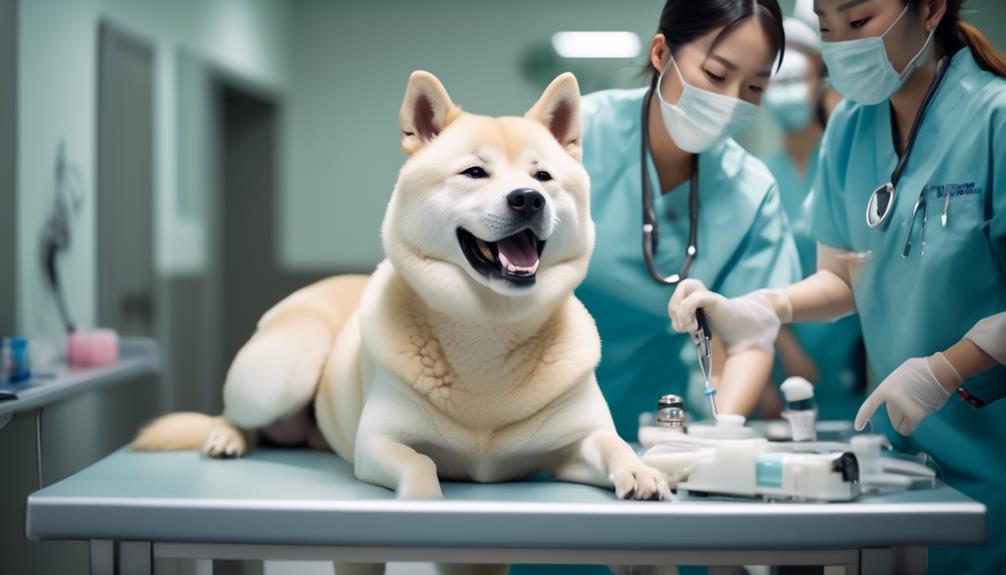
To ensure the well-being of Korean Jindo Dogs, it's important to address their specific health issues and provide proper care. Here are three key factors to consider:
- Regular Veterinary Check-Ups: Regular visits to the veterinarian are essential for maintaining the health of Korean Jindo Dogs. These check-ups allow for early detection of any potential health issues and ensure that necessary preventive measures, such as vaccinations and parasite control, are taken.
- Balanced Diet: A well-balanced and nutritious diet is crucial for the overall health and longevity of Korean Jindo Dogs. Providing them with high-quality commercially produced foods or home-cooked meals with natural ingredients and supplements can help meet their nutritional needs.
- Exercise and Mental Stimulation: Korean Jindo Dogs have medium-high energy levels and require regular exercise and mental stimulation to prevent boredom and promote their well-being. Engaging in activities like daily walks, playtime, and training sessions can help keep them physically and mentally stimulated.
Training and Socialization
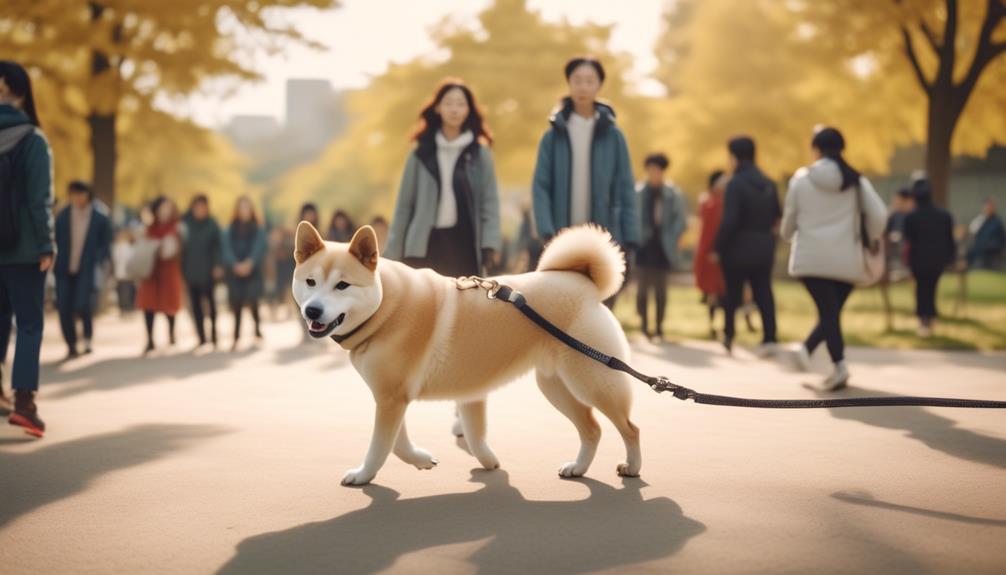
Training and socialization are crucial aspects of raising a well-behaved and balanced Korean Jindo Dog. These intelligent and trainable dogs are eager to please their owners, making the training process quick and easy. However, they can also be stubborn at times, so patience is key. Early socialization is important to prevent aggression and ensure that they can interact well with other animals and people. A well-socialized Jindo will be more confident and less likely to develop behavioral issues. To help with training and socialization, the use of positive reinforcement techniques, such as treats and praise, is highly effective. Consistency and firm but gentle guidance are also important. Below is a table summarizing the key points for training and socializing a Korean Jindo Dog.
| Training and Socialization |
|---|
| Use positive reinforcement |
| Be consistent |
| Provide firm but gentle guidance |
| Start socialization early |
| Be patient |
Feeding and Nutrition
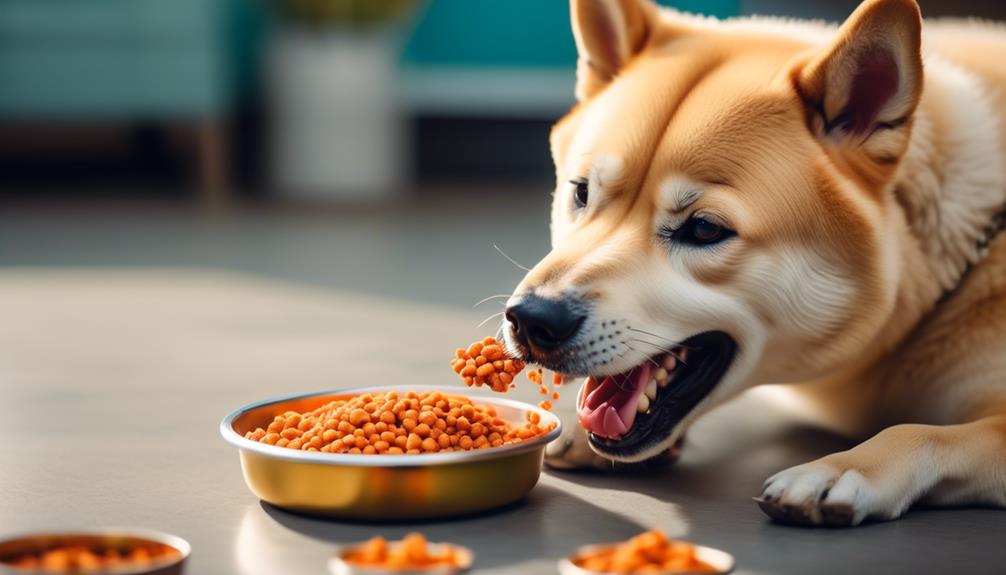
Feeding and nutrition play a vital role in maintaining the health and well-being of a Korean Jindo Dog. To ensure that your Jindo receives the proper nutrition, consider the following:
- Balanced Diet: Provide a balanced diet that includes high-quality protein, healthy fats, and carbohydrates. Look for dog food that lists meat as the first ingredient.
- Portion Control: Measure your dog's food to prevent overfeeding and obesity. Follow the recommended serving size based on your dog's age, weight, and activity level.
- Regular Feeding Schedule: Establish a consistent feeding schedule to help regulate your dog's digestion and prevent digestive issues. Feed your Jindo at the same time each day, dividing their meals into two or three smaller portions.
Grooming and Maintenance
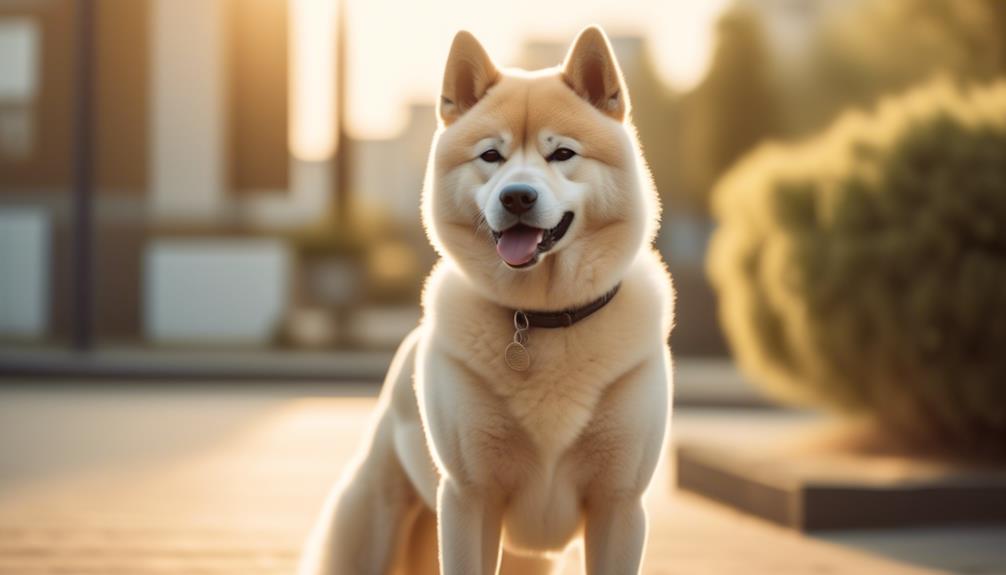
Grooming and maintenance for the Korean Jindo Dog is relatively low-maintenance due to their short, double coat. These dogs have a dense and weather-resistant outer coat, which helps protect them from harsh climates. Their undercoat is soft and insulating, keeping them warm in colder temperatures.
The Korean Jindo Dog's coat does shed, but not excessively. Regular brushing is recommended to remove loose hair and keep the coat healthy. Bathing should only be done as needed, as excessive bathing can strip the natural oils from their coat.
Additionally, it's important to regularly check their ears, trim their nails, and brush their teeth to maintain their overall hygiene. With proper grooming and maintenance, the Korean Jindo Dog can maintain a clean and healthy appearance.
Jindo as a Family Pet
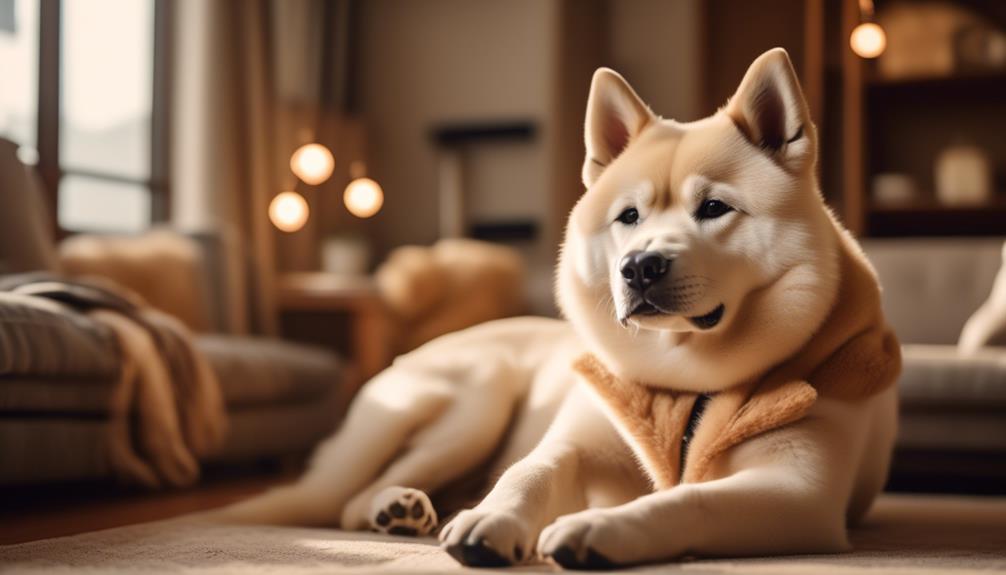
The Korean Jindo Dog can make a wonderful addition to a family as a loyal and protective companion. Here are three reasons why Jindos are great family pets:
- Loyalty: Jindos are known for their unwavering loyalty to their owners. They form strong bonds with their families and will go to great lengths to protect them. Whether it's keeping watch over the house or providing comfort during tough times, Jindos are always there for their loved ones.
- Protective Nature: Jindos have a natural instinct to protect their family members. They're alert and vigilant, always on the lookout for potential threats. This makes them excellent watchdogs, as they'll bark to alert their owners of any suspicious activity.
- Gentle with Children: Despite their protective nature, Jindos are surprisingly gentle with children. They have a patient and tolerant demeanor, making them great playmates for kids. With proper socialization and training, Jindos can be trusted around children of all ages.
Finding a Jindo Dog: Adoption and Breeder Options
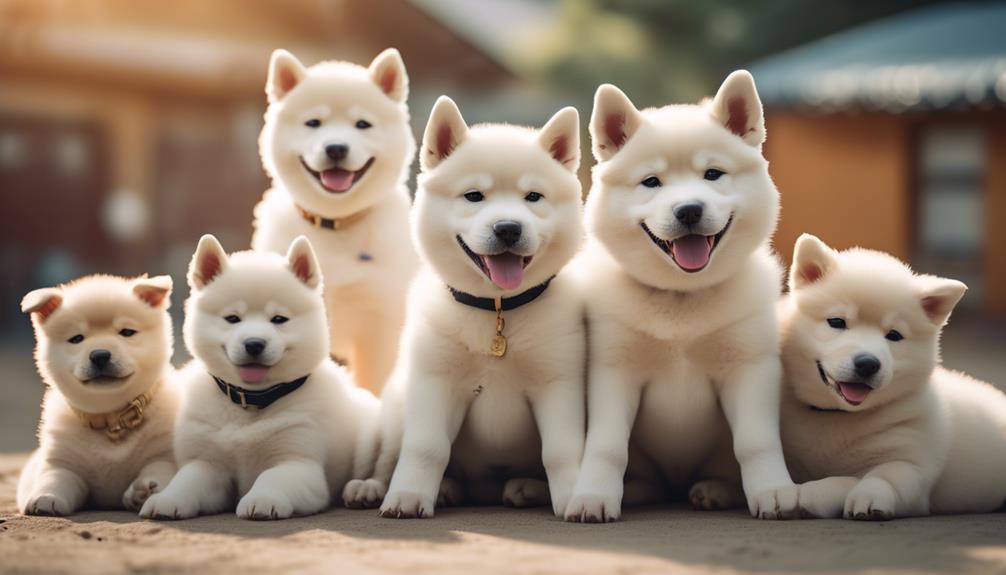
When looking to find a Jindo dog, there are various options available for adoption or from reputable breeders. Adopting a Jindo dog can be a rewarding experience, as it provides a loving home for a dog in need. Many animal shelters and rescue organizations have Jindo dogs available for adoption. These dogs are often already spayed or neutered and may have received basic training. Another option is to find a reputable Jindo dog breeder. It is important to do thorough research and choose a breeder who prioritizes the health and well-being of their dogs. A reputable breeder will provide documentation of health clearances and be willing to answer any questions about the breed. Below is a table summarizing the adoption and breeder options for finding a Jindo dog:
| Adoption Options | Breeder Options |
|---|---|
| Animal Shelters and Rescue Organizations | Reputable Jindo Dog Breeders |
| Dogs in need of loving homes | Health clearances provided |
| Spayed/neutered and possibly trained | Prioritizes health and well-being |
| Application process may be required | Willing to answer questions |
It is important to note that adoption and breeder options may vary depending on location, so it is recommended to check local resources and reputable websites for available Jindo dogs.
Frequently Asked Questions
Are Korean Jindo Dogs Good With Children?
Korean Jindo Dogs are generally good with children. They are loyal, affectionate, and protective, making them great companions. However, early socialization is important to prevent aggression and patience is needed during training stages.
How Do Korean Jindo Dogs Typically Get Along With Other Pets?
Korean Jindo Dogs typically get along well with other pets, especially if they are properly socialized from an early age. However, as with any breed, individual personalities may vary, so it's important to introduce them slowly and monitor their interactions.
What Is the Average Cost of Owning a Korean Jindo Dog?
The average cost of owning a Korean Jindo Dog can vary depending on factors such as location, breeder reputation, and bloodline. However, prospective owners should budget for expenses such as initial purchase price, vaccinations, grooming, food, and veterinary care.
Can Korean Jindo Dogs Be Left Alone for Long Periods of Time?
Yes, Korean Jindo dogs can be left alone for long periods of time, but it is not recommended. They thrive on companionship and may develop separation anxiety if left alone frequently.
Do Korean Jindo Dogs Have Any Specific Dietary Requirements?
Korean Jindo dogs have specific dietary requirements. They thrive on a carnivorous diet, and options include home-cooked meals with natural ingredients and supplements, as well as all-natural, high-quality, commercially produced foods.
What are the differences between a Korean Jindo dog and a Presa Canario dog?
The presa canario dog breed hails from the Canary Islands and is known for its large size and powerful build. On the other hand, the Korean Jindo dog is a medium-sized breed from Korea, prized for its loyalty and intelligence. While both breeds are strong and independent, they have distinct physical and temperament differences.
Conclusion
In conclusion, the Korean Jindo Dog is a versatile and adaptable breed that can thrive in apartment living with the right care and attention.
While they have high energy levels and require adequate exercise, their loyalty and protective nature make them excellent companions and watchdogs.
By providing them with mental and physical stimulation, along with proper feeding and grooming, owners can ensure a happy and healthy life for their Korean Jindo Dogs.
Whether adopted or obtained from a breeder, these dogs make a wonderful addition to any family.




